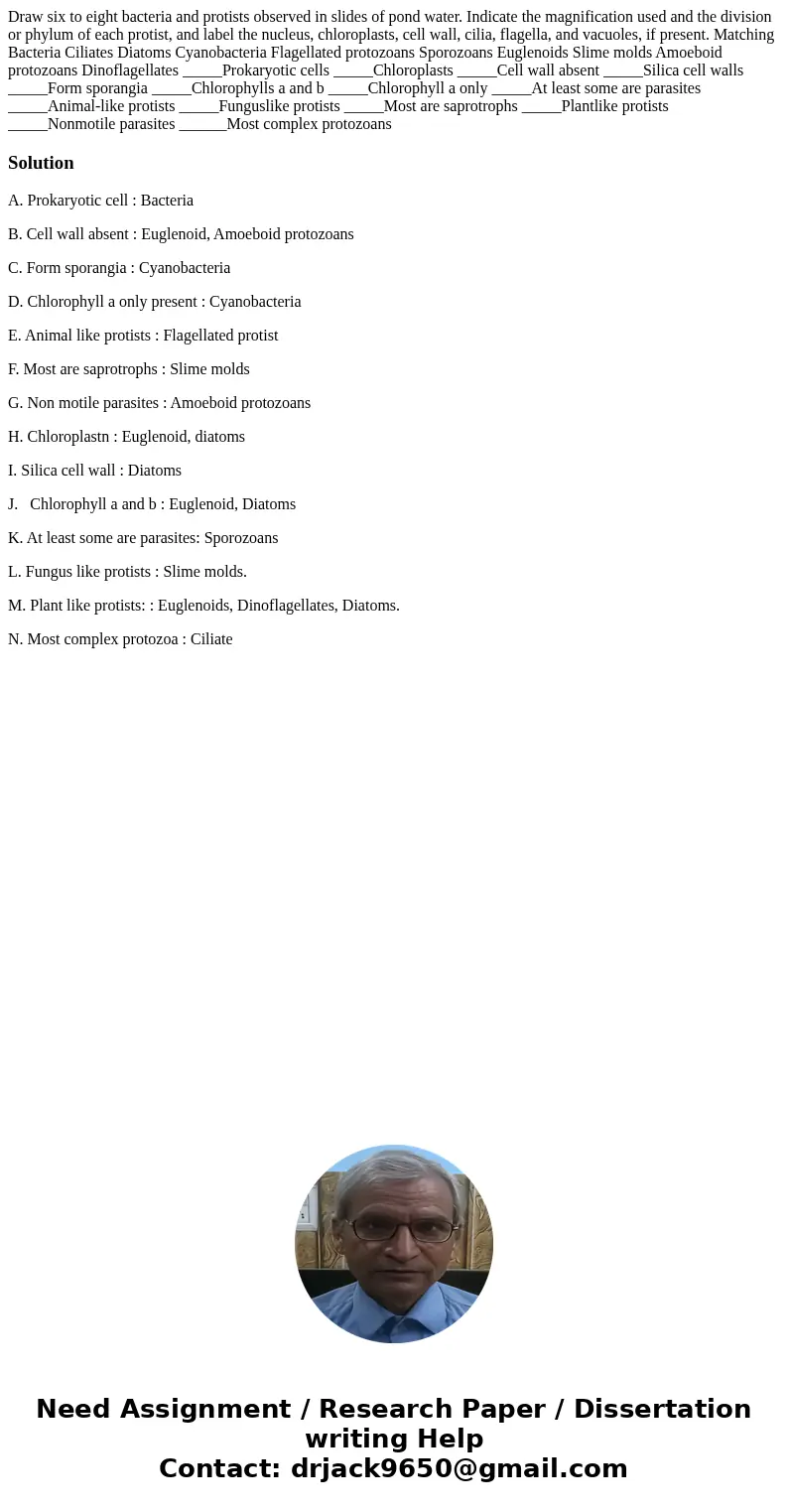Draw six to eight bacteria and protists observed in slides o
Draw six to eight bacteria and protists observed in slides of pond water. Indicate the magnification used and the division or phylum of each protist, and label the nucleus, chloroplasts, cell wall, cilia, flagella, and vacuoles, if present. Matching Bacteria Ciliates Diatoms Cyanobacteria Flagellated protozoans Sporozoans Euglenoids Slime molds Amoeboid protozoans Dinoflagellates _____Prokaryotic cells _____Chloroplasts _____Cell wall absent _____Silica cell walls _____Form sporangia _____Chlorophylls a and b _____Chlorophyll a only _____At least some are parasites _____Animal-like protists _____Funguslike protists _____Most are saprotrophs _____Plantlike protists _____Nonmotile parasites ______Most complex protozoans
Solution
A. Prokaryotic cell : Bacteria
B. Cell wall absent : Euglenoid, Amoeboid protozoans
C. Form sporangia : Cyanobacteria
D. Chlorophyll a only present : Cyanobacteria
E. Animal like protists : Flagellated protist
F. Most are saprotrophs : Slime molds
G. Non motile parasites : Amoeboid protozoans
H. Chloroplastn : Euglenoid, diatoms
I. Silica cell wall : Diatoms
J. Chlorophyll a and b : Euglenoid, Diatoms
K. At least some are parasites: Sporozoans
L. Fungus like protists : Slime molds.
M. Plant like protists: : Euglenoids, Dinoflagellates, Diatoms.
N. Most complex protozoa : Ciliate

 Homework Sourse
Homework Sourse